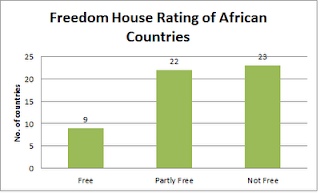Assad and his cronies have suffered a massive humiliation,
the defection of Prime Minister Riad Hijab is the highest profile defection yet.
Yesterday it was revealed that the PM had defected and fled to Jordan with his
family, in a statement he called the Syrian government a “terrorist regime” and
says he has joined the ranks of the revolution. This is a huge blow to the
regime, considering the PM has only been in office for two months and removes
the regime’s most important Sunni member. Many people will begin to wonder
which minister will be the next defect as Hijab is unlikely to be the last.
On top on the refection, the headquarters of the state
television and radio station were bombed yesterday. Although nobody is reported
to have been killed, this is a sign that the rebels are trying to target Assad’s
propaganda machine that is still trying to brainwash the Syrian people. We all
know that Assad has lost control of most of the eastern portions of Syria, as
well as many districts of Homs and Aleppo.
With the rebels basically in control of whole swathes of the
country and achieving high profile defections every week I am finally seeing a
comparison to Libya. Right from the start I always believed that we could not
treat Libya and Syria as the same. Syria has always been a completely different
situation. Things are completely different now in Syria, even to what it was
like just a matter of weeks ago. Although we cannot treat them as exactly the
same, I believe that the situation in Syria is such that we can look to what
happened in Libya to guide us in Syria. The major obstacle to this is the UN
Security Council, Russia and China decided not to block Western action in
Libya, but they are fighting tooth and nail to make sure no Western action is
taken in Syria.
Although I disagreed with military aid in the past, I now
believe that the new situation is such that we should provide some limited
resources. I would still be wary of providing weapons, due to the risk of them
falling into the hands of jihadists, instead we could provide intelligence as
well as communication technology as well as vehicles for transportation and
food to help sustain the rebels.
We must act now if we wish to have favour in a new Syria.








